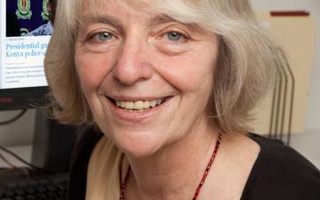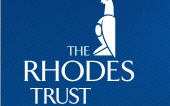
Jorge L. Maestre Mesa, who was invited to Harvard as part of the Rockefeller Center’s Cuban Visiting Scholar Program, spoke at the “Pioneering Medical Research in Cuba” Panel at Longwood this month.
When Cuban microbiologist Rayner R. Díaz applied for a visa to enter the United States, he thought he would be a shoe-in.
His wife had received her visa a few weeks before without any trouble. And Díaz was no newcomer to the United States—he had already visited for a few months in 1999.
But when days and weeks of waiting for the State Department’s approval turned into months and years, Díaz couldn’t imagine what was causing the holdup.
“Everything on my application was perfect,” he said. “All they said was they were still processing.”
Finally, on Oct. 19 of this year, the State Department issued Díaz and two other Cuban scholars who had been invited to Harvard—Raúl D. Rodríguez and Jorge L. Maestre Mesa—the three-month visas that they had applied for in April and November of 2002.
Back in Cuba, the three scrambled to gather their belongings and rearrange their work plans to accommodate their unanticipated stay in Cambridge.
“We weren’t expecting to get these visas,” said Rodríguez. “I needed to modify my work [in Cuba] because I was planning to be here two and a half years before.”
On Tuesday, the three microbiologists presented summaries of their research on dengue and tuberculosis at a joint Harvard Medical School and Harvard School of Public Health forum.
Though those applications were eventually successful, experts say that applying for permission to come to the United States from Cuba has become increasingly difficult since Sept. 11, and Harvard academics say the policies are impeding their efforts to foster collaboration with colleagues in Cuba.
COLLABORATING WITH CUBA
In October, the State Department issued a blanket denial of visas to 65 Cuban scholars scheduled to attend a Latin American Studies Association (LASA) conference in Las Vegas.
The department cited a U.S. policy that prohibits entry to the United States by Cuban government and Communist party employees as its reason for issuing the denial.
Three Harvard faculty who were attending staged a protest, holding a forum titled “Academic Freedom and Scholarly Exchange with Cuba” in place of a planned discussion of a book on the Cuban economy.
John H. Coatsworth, the director of Harvard’s Rockefeller Center for Latin American Studies, was one of the protesters. Coatsworth said U.S. policies continue to have an impact on academic work done between the two countries.
“I think it’s unfortunate because these kinds of delays make scholarly and scientific exchanges with Cuba extremely difficult,” said Coatsworth.
Read more in News
Quincy Considers RestrictionsRecommended Articles
-
 Scholars Among Students
Scholars Among Students -
HGSE Sponsors Immigration TalksJournalists and scholars gathered last Friday at the Nieman Foundation to discuss the unique relationship between their respective fields in tackling the issue of illegal immigration—a topic they agreed was generally misunderstood by the public
-
 Harvard and Rhodes: By the Numbers
Harvard and Rhodes: By the Numbers -
In Song, Hidden Meanings of Gender and HistoryIn 1620, a nobleman and a nun in Florence, Italy, were accused of having an affair and charged with adultery. They claimed that the nobleman had sneaked into the nun’s apartment to hear her sing, not because of a sexual relationship.
-
Two Students Awarded Marshall ScholarshipsAlex W. Palmer ’12 and Aditya Balasubramanian ’12-’13 will study in the United Kingdom next year as two of the 34 nationwide recipients of the 2013 Marshall Scholarship.
-
 'Jesus's Wife' Parchment Continues to Ignite Controversy
'Jesus's Wife' Parchment Continues to Ignite Controversy













